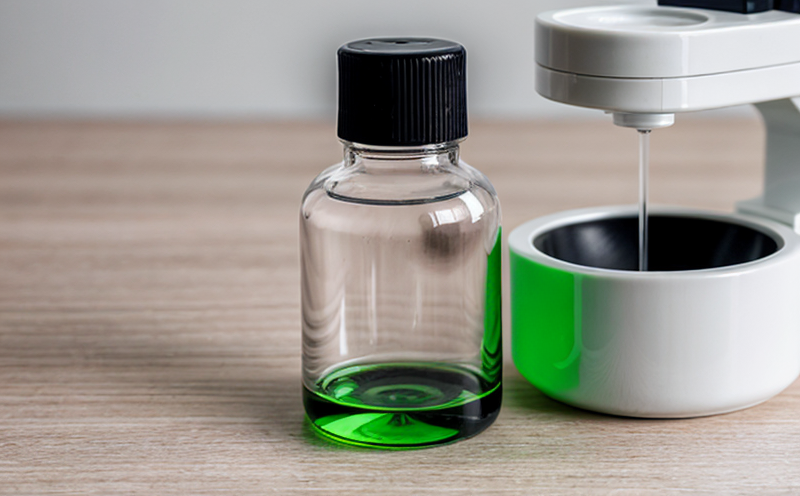Inhalation Bioavailability Testing
Understanding and optimizing drug delivery is a cornerstone of pharmaceutical development. Inhalation bioavailability testing provides critical insights into how efficiently drugs can be delivered through inhalation routes, such as nebulizers or dry powder inhalers (DPIs). This service is pivotal for ensuring that the drug reaches the lungs effectively, which is essential for treating respiratory conditions like asthma and chronic obstructive pulmonary disease (COPD).
Pharmacokinetics plays a significant role in determining bioavailability. The process involves absorption, distribution, metabolism, and excretion of drugs within the body. Inhalation bioavailability testing focuses on the absorption phase, where the drug passes through the pulmonary mucosa into the bloodstream.
The efficiency of inhalation is influenced by several factors including particle size, lung deposition, and residence time in the lungs. Particle size is particularly crucial; particles that are too large may not reach the alveoli for efficient absorption, while those that are too small might bypass the respiratory tract entirely. The testing process involves simulating real-world conditions to assess these parameters accurately.
Our state-of-the-art facilities use advanced equipment such as flow manometers and mass spectrometers to analyze drug concentrations in exhaled breath. This helps in determining both the amount of drug that reaches the lungs (lung deposition) and how much is absorbed into the bloodstream, which directly impacts therapeutic efficacy.
A well-designed inhalation bioavailability test ensures that the drug formulation meets regulatory standards for safety and effectiveness. Regulatory bodies such as the FDA and EMA have specific guidelines on what constitutes acceptable levels of lung deposition and systemic absorption. Compliance with these regulations not only facilitates market access but also enhances patient safety by ensuring that the drug behaves predictably in vivo.
Our team of experts works closely with clients to design bespoke testing protocols tailored to their unique product profiles and therapeutic needs. This collaborative approach ensures that each study is conducted precisely as required, thereby minimizing risks associated with variability or misinterpretation.
In addition to providing robust scientific data, we also offer comprehensive support services including formulation advice, analytical method development, and full clinical trial design assistance. By leveraging our expertise in inhalation pharmacokinetics, clients can enhance their product development strategies significantly.
Customer Impact and Satisfaction
Inhalation bioavailability testing has a direct impact on the quality of care delivered to patients suffering from respiratory diseases. Accurate bioavailability data ensures that drugs are administered in optimal doses, reducing the likelihood of over- or under-treatment.
Improves patient outcomes by optimizing drug delivery methods.
Reduces adverse effects associated with improper dosage administration.
Simplifies regulatory compliance through rigorous testing processes.
Enhances product development timelines via informed decision-making based on reliable data.
Our clients benefit from enhanced credibility and market positioning due to the high quality of our services. Positive customer feedback reinforces our commitment to excellence in every aspect of our work, ensuring ongoing satisfaction across all sectors we serve.
We pride ourselves on maintaining strong relationships with our customers by offering personalized service solutions that address their specific needs. This tailored approach contributes significantly to achieving mutual goals and fostering long-term partnerships.
International Acceptance and Recognition
The International Organization for Standardization (ISO) has established standards like ISO 11967-3:2004 which specify methods for measuring aerosolized drug delivery to the lungs.
Aerosol testing procedures are also governed by American Society for Testing and Materials (ASTM) guidelines, particularly ASTM E2856.
The European Committee for Standardization (CEN) has provided harmonized standards such as EN ISO 11967-3:2004.
International Conference on Harmonisation (ICH) guidelines ICH Q5D also cover aspects of inhalation bioavailability testing, ensuring consistency across different regulatory environments.
Our laboratory adheres strictly to these international standards, guaranteeing that our results are universally acceptable and recognized worldwide. This alignment with global best practices not only simplifies compliance but also enhances the reliability of our findings.
Competitive Advantage and Market Impact
Inhalation bioavailability testing offers several competitive advantages in today’s highly regulated pharmaceutical market:
First-to-market opportunities: By conducting thorough inhalation tests early in the development cycle, companies can identify potential issues before competitors.
Better product differentiation: Accurate bioavailability data enables manufacturers to fine-tune formulations for enhanced performance and efficacy.
Reduced development costs: Early identification of problems through rigorous testing saves time and resources during later stages of clinical trials.
Improved reputation among stakeholders: Demonstrating adherence to stringent international standards builds trust with investors, regulators, and healthcare providers.
The ability to demonstrate robust bioavailability data positions companies favorably in competitive landscapes. It underscores their commitment to innovation while meeting the highest safety and effectiveness standards.
Beyond mere compliance, our service contributes significantly to advancing medical science by contributing high-quality research outputs. These contributions can lead to new discoveries that improve patient care globally.





